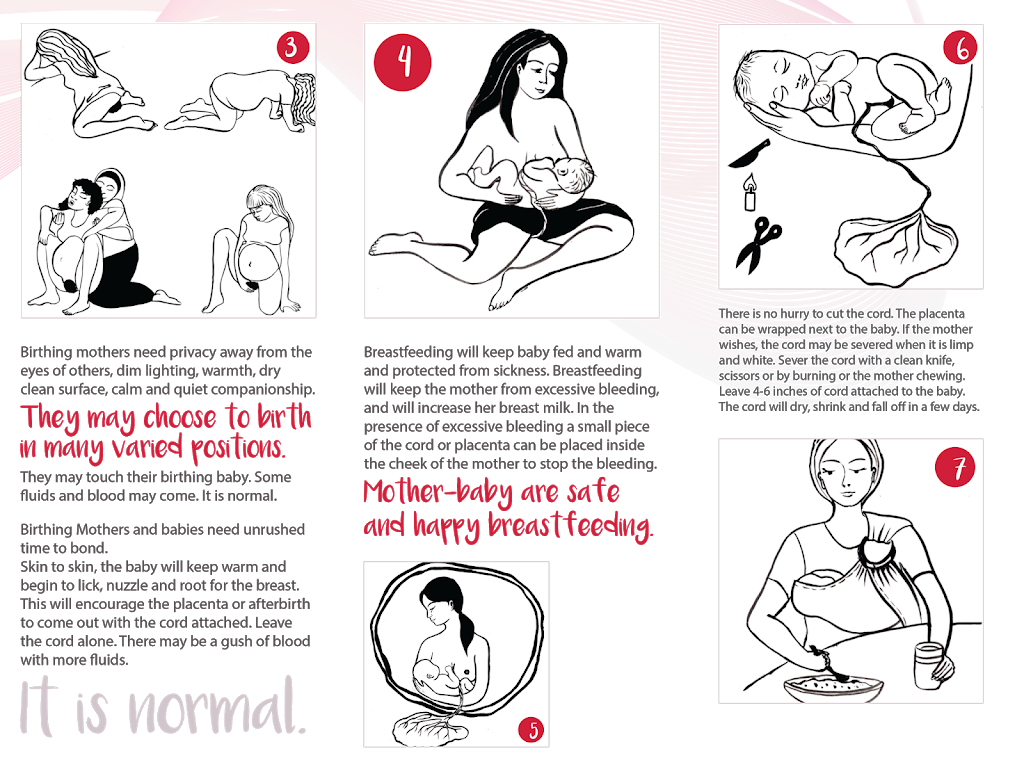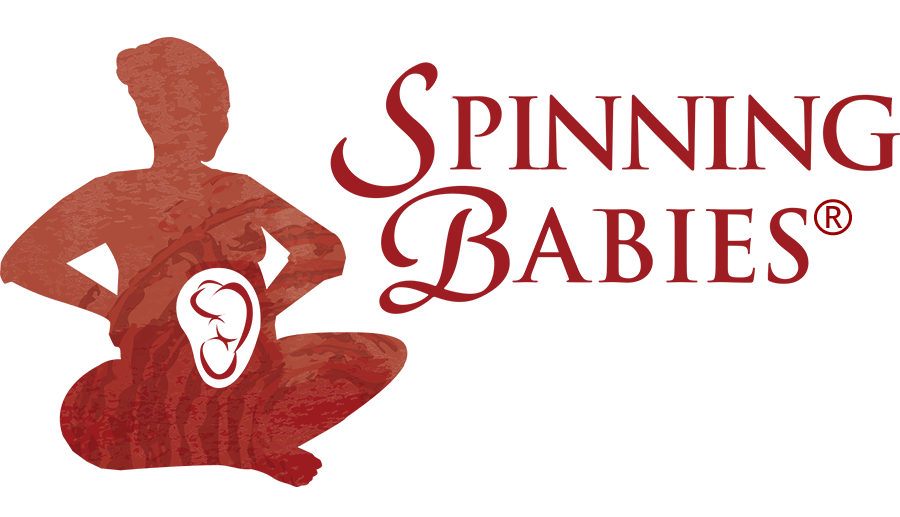Emergency Birth

Please find stable ground, and when baby comes, have a level floor or surface under you. Kneel on one knee and put the other foot flat on the ground as baby comes out. You can use your hands now to catch your own baby before baby touches the ground. This is particularly good if the ground is dirty, contaminated with flood water, or mold. The first flora wins; make it Mama’s.
Help baby breath
Some babies are born ready to breath. If not, it is usually because they have amniotic fluid in their mouth.
Tip baby face to the side and chest lower than hips in the safety position so baby can spit fluids out of their mouth. Make the neck straight, don’t let baby’s head fall back or forward all the way to their chest or breathing will be too hard for baby!
Stimulate baby by rubbing back. Don’t spank baby. If necessary, clean mouth and give a very small puff of breath into mouth. Don’t be stressed and breathe a mouthful of air into baby. Baby’s lungs are little, a cheekful of breath is plenty and exhale steady into baby mouth, don’t blast air in or lungs can burst. A straight neck is best for this, chin slightly up, but not down.
Some babies are limp at birth and just need a little moment before they breathe. If they need help, remember, tip, rub, talk to them, and if necessary, gently inflate lungs with a small puff of air.
Bring baby to belly or chest keeping the neck straight and place a dry cloth over baby. Use a shirt from a family member. Wipe blood and fluid off baby, and put a different dry cloth over baby, but not over face.
Keep baby on mother’s chest or belly for warmth and cover.
Don’t try to cut the cord. It will dry by day 3-5 if kept clean. Add salt and herbs to the placenta but don’t get a bunch of salt on baby. Nurse baby to reduce blood loss. Massage the uterus if necessary. It’s deep in the belly. Pee often to reduce unnecessary blood loss. Nurse often, too, every hour to 3 hours is typical the first week. The baby may sleep about 5 hours on the end of the second day but if baby sleeps more than 5 hours too often, wake and nurse baby during the first few days or weeks until baby is alert and looking around sometimes each day.
Push placenta out when you see a gush of blood after the birth. Being upright or squatting over a bowl, clean garbage bag, or something to keep the placenta clean. Transfer it to another clean, strong plastic bag like a gallon ziplock bag (after cleaning it a bit) and still don’t cut the cord unless you have sterile equipment now. Just keep the bag near baby so the cord isn’t pulled on. Put a diaper on baby or use a wash cloth or even a bit of plastic bag (but not tight) to collect baby’s sticky, dark meconium (first poops) which is hard to clean. Don’t use flood water on a newborn! The baby isn’t immune to that bacteria in the flood water.
Love your baby. Breath. Focus on your baby and your new job as a parent. Sing lullabies. You will be soothed along with your baby.
Day 2: When baby pees, make a sissssss noise each time and notice how long after baby nurses that baby pees or poos. By day three or four you can make the little noise at about the right time and baby may begin to pee when you have a bowl under baby. Make baby comfy. If you don’t have diapers learning this tip may make life easier until you do… or maybe you may not want to go back. This can be gently and lovingly taught to a 3 day old. Just be calm and accepting. There is a lot of stress around. Create the love that will carry you all through.
Share if you like. Like if you share! Share with friends in Texas.
See Sister MorningStar’s free download for helpers at Emergency Shelters: https://sistermorningstar.com/shanti.html


